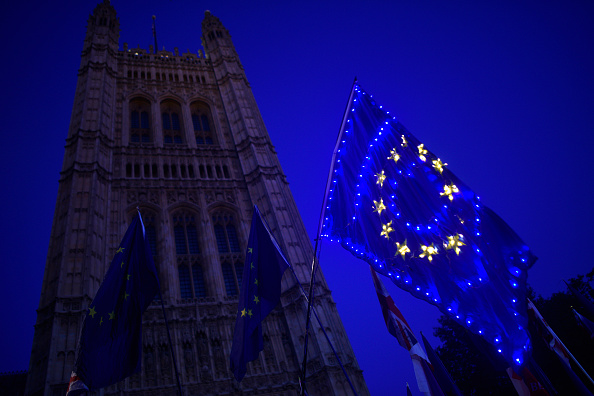WHAT HAPPENS NOW?
As previously stated the EU has already agreed to the extension, in principle, and an early general election seems to be a likely scenario. However, in the event that something changes and the EU decides not to give further extensions then Britain would not have enough time to pass the Withdrawal Agreement Bill into law, nor will it have enough time for an election and would, therefore, crash out of the EU without a deal on October 31 at 11 PM.
IS A GENERAL ELECTION POSSIBLE?
The largest hurdle in the way of the Tory government is the fact that it does not have a majority in parliament, this is especially true after 21 Tory MPs were dismissed from the party in September for opposing Johnson’s willingness to risk a no-deal Brexit and after DUP MPs fell out favor with him due to his Brexit deal which would place a border between the UK and Northern Ireland. If the EU is generous enough to give an extension to at least January 31, 2020, then that would give the UK enough time for a quick general election. This won’t be an easy task since the Prime Minister would need approval from parliament before he can call for an early general election, and opposition MPs have previously stated that they would not vote for a general election unless Johnson puts a no-deal scenario off the table. It would be difficult to predict which direction a general election would go towards, but the safest bet would be a Conservative victory but they would probably not gain a majority and would, therefore, need to form another coalition government.
WHAT ABOUT A SECOND REFERENDUM?
If the EU were to grant a longer extension, then a second referendum might be a possibility, but that would require a change in government first, either via a general election or more dramatically a vote of no confidence. The current Tory government has previously stated that it intends to respect the first vote and is therefore not in favor of a second referendum. A second referendum might be an advisory one, just like the one held in 2016, and the government would not be legally obliged to honor it. On the other hand, a so-called “confirmatory referendum” might be held in which a certain deal is placed against no-deal or even remain, this one would be legally binding though and the government would be required to honor the result. Labour, the main opposition party, has stated that it supports holding a second referendum to allow the people to choose the path they desire. Other parties, particularly the Liberal Democrats and the Scottish Nationalist Party (SNP) have gone even further and have called for revoking Article 50 thereby canceling Brexit altogether. If (with emphasis on the if) Labour ends up gaining enough seats to form a coalition, then a second referendum with remain as an option might be a viable scenario, however, it is difficult to predict whether or not smaller parties would be willing join Labour in a coalition government. Earlier this year, Jo Swinson, leader of the Lib-Dems the largest small party in Westminster, stated that she would not join a cross-party coalition with Jeremy Corbyn as a temporary Prime Minister.
Additionally, the process of a second referendum would be a timely one, for instance, the 2016 referendum took 13 months to organize. A study conducted by University College London (UCL) cited that the 2011 Alternative Referendum took only 40 weeks of preparation, however, the same study also noted that that particular referendum was a simple yes/no option on the current status quo, in this case, the first past the vote system. This time there wouldn’t be a status quo to fall back on in the event that a deal doesn’t pass through parliament, therefore more weeks of preparation would be required. All in all the study also stated that if a second referendum is to be held, then a minimum of 22 weeks would be needed for the UK.

WHAT DOES THE EU THINK OF ALL THIS?
Evidently, the EU wanted to move on from this period and go on to the transitional period that would formally start the process of the UK’s exit from the bloc. Nevertheless, a BBC report by Europe expert Katya Adler has stated that the EU has both the desire to appear neutral towards the UK’s internal affairs and not running the risk of a no-deal scenario, therefore it might well grant an extension. There’s no telling the exact length extension will be, as some countries are more willing than others to give a longer extension, for example, France is one of the countries that are much less adamant on granting a long extension (let alone an extension at all). The fact that a changing of guards will happen on November 1 in the EU will make the situation more unpredictable, as there’s no telling if Ursula von der Leyen (president-elect of the European Commission) and Charles Michel (president-elect of European Council) will be this patient towards Britain.







